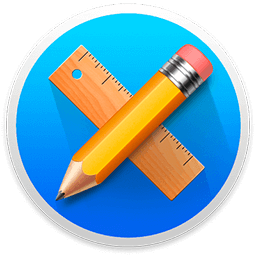

- #Publisher master pages not applying how to
- #Publisher master pages not applying update
- #Publisher master pages not applying software
- #Publisher master pages not applying trial
#Publisher master pages not applying how to
COVID-19: How to share, discover and reuse COVID-19 related data and code.How to use the Imperial data catalogue (Symplectic and Spiral).
#Publisher master pages not applying software

Depositing in PubMed Central and Europe PMC.Deposit a paper from Europe PubMed Central.UKRI Open Access Policy from 1 April 2022.
#Publisher master pages not applying update
Once you have created pages using your master documents you can update them all at once by updating the master page.Search Imperial Search Scholarly Communication Section Navigation You can use these to format documents with similar themes in your publication to avoid repetitive formatting. You have now finished this tutorial that describes Microsoft Publisher master pages. Look at how that affected the two pages based on master document “B.” To do this, click “View” on the main menu and then click the “Normal” icon all the way to the left of the ribbon. We’ll use a piece of clip art that installed with Publisher. Let’s update master page “B” to have a small logo on it. Open master page “B” by clicking the “View” tab and then “Master Page.” You now see the place where we earlier created our master pages. We can change all the pages that are based on the same master page by editing the master page. Suppose we have a few pages in our publication.

We have now created and applied Publisher 2010 master pages to an actual document. Now, let’s add something to this page so we can tell that it is a normal page and not a master page. You see that the new page takes the form of master page (A). Add an object as you would if your were making an actual publication.Ĭlick “Insert” and click the “Page” icon. For master page “B,” set the background to 50% tint of Accent 2.Ĭlick on the “View” tab again and choose “Normal.” Your first page now has the form of your second master page (B). For master page “A,” set the background to 50% tint of Accent 1. Now that you have your master pages in view, you can change the page size, alter the margins, insert guides, add backgrounds, create headers and footers, add images, and a host of other actions.įor the sake of this tutorial, let’s create two different master pages with different backgrounds. This can become very convenient if you have one desired look for the cover of your publication, but the inserts need to be of a different layout, but have that layout common among them. You will notice the default “Page ID” is “B” and the “Description” is “Master Page B.” This is because Publisher counts your first document as the first master page and has labeled it as “A.” In other words, every publication has one master page, so when you add one, your document will have two. Just click on the “Add Master Page” and you will get the “New Master Page” dialog. Creating Publisher 2010 Master PagesĬreating Publisher 2010 master pages is easy. Once you are there, you will see a button labeled “Master Page.” Click the icon and you will see where Publisher master pages are created and updated. Once you have your new document open, click the “View” tab and then look to the left where you will see the “Views” cluster on the ribbon. You don’t have to be too concerned about the dimensions of your pages right now since this is just a tutorial. When you have Publisher 2010 installed, start the program and create a blank publication.
#Publisher master pages not applying trial
If you need to obtain the software, you can download it from the Microsoft Office Web site on a trial basis. To use Publisher 2010, you will need to have a computer that meets the minimum system requirements of the software running on a supported version of Windows. Getting Started with Publisher 2010 Master Pages


 0 kommentar(er)
0 kommentar(er)
